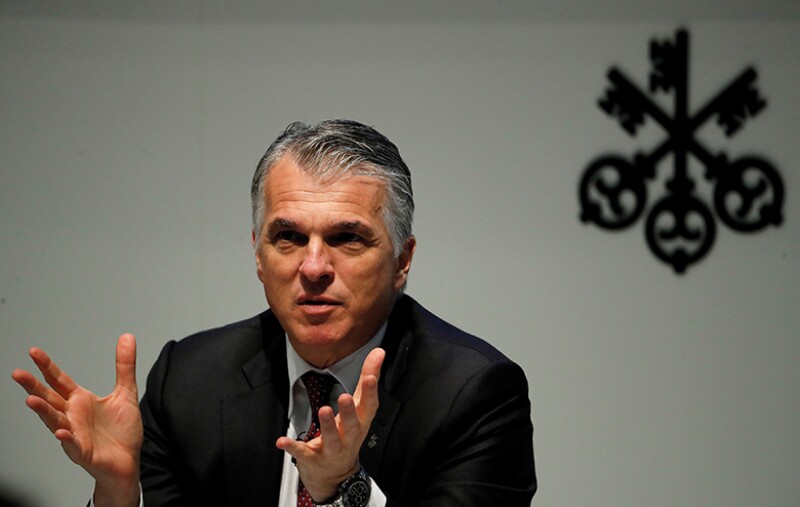
It’s very difficult to have one eye on the short term and one eye on the long term

|
|
THE CEOS |
|
Commentators have spent much of the last decade bemoaning how bonuses encouraged the pursuit of the kind of short-term goals that led to the financial crisis. However, the increasing importance of quarterly results is also weighing on the banking sector’s ability to build effective long-term business models, says Sergio Ermotti, chief executive of UBS.
This is partly due to shifts in the asset management industry towards low-cost passive funds, he argues. Nowadays, even long-only investors concentrate too much on the quarter-to-quarter evolution of one or two key performance indicators. This is because of the volume and frequency of the information they receive and because they are themselves subject to outflows if their investments underperform.
“The amount of true long-term shareholders is not very high,” he says. “Active managers may say they are looking at long-term fundamentals but often get bogged down on short-term events, without the full context. The passive side of the asset management industry has gained so much attention lately – that puts more pressure on active managers to demonstrate alpha, which drives this behaviour of focusing on the short term.
“It’s very difficult to have one eye on the short term and one eye on the long term.”
'An obsession'
Ermotti says part of the weakness in the first quarter at his own bank is due to the unusually favourable conditions in markets a year earlier, which makes a year-on-year comparison slightly misleading.
“Last year, the industry had a spectacular first quarter,” he says. “We had a blow-out first quarter in the investment bank, with several big transactions, so the first quarter of this year would have looked relatively better if we had not had such a good first quarter in 2018.”
The danger, according to Ermotti, is that short-term results lead to short-term decisions that could have a detrimental effect on the franchise.
“There’s an obsession on short-term cost savings in the industry today. Besides that, you don’t resolve strategic issues only by taking out costs. In today’s environment, it’s impossible to take out costs as quickly as the revenue deteriorates.”
Now one of Europe’s longest-standing big bank chief executives, he has spent much of his eight years as head of UBS restructuring the bank and refocusing on its core strengths. It might be more than 10 years since the global financial crisis and UBS’s balance sheet might have shrunk from around $1.4 trillion to $900 billion, but he still spends much of his time dealing with legacy problems.
In early 2019, prospects seem bleak for European banks. Unfortunately, as Ermotti acknowledges, that does not mean they will get better. The problem is that while trade policy and the whims of populist politicians are largely out of their control, there are few quick fixes the banks can make themselves, especially as more of them have refocused their businesses and maniacally cut costs already.
Economic outlook
Postponed ECB rate hikes, meanwhile, are not just important for banks’ maturity transformation role but also for their investment banking businesses, as it reflects a poorer global and eurozone economic outlook and therefore less demand for growth capital.
“The economy has to grow and in a predictable way,” says Ermotti, when asked about the danger that the first quarter was not a one-off. “If we don’t have a more balanced and predictable macroeconomic and geopolitical picture, it’s quite difficult to restore confidence.”
Persistently low and negative rates in Europe have removed the deposit business on which large wealth managers such as UBS could fall back during periods of market volatility and uncertainty.
“You had a natural hedge in deposits,” says Ermotti. “Now it’s crystal clear that if you try to grow deposits, especially outside of dollars, there’s a capital hit and profit leakage due to the low interest rate environment.
“Risk aversion is growing; it’s affecting everyone, and other areas of banking business are not compensating.”
In the longer term – and despite worries about increasing individual banks’ complexity and systemic risk – consolidation in Europe will be unavoidable, according to Ermotti, as banks must ensure their core businesses have critical scale.
“These valuations indicate investor consensus, either that bank stocks are a leading indicator for the economy, or that there is structural overcapacity in the sector.”
